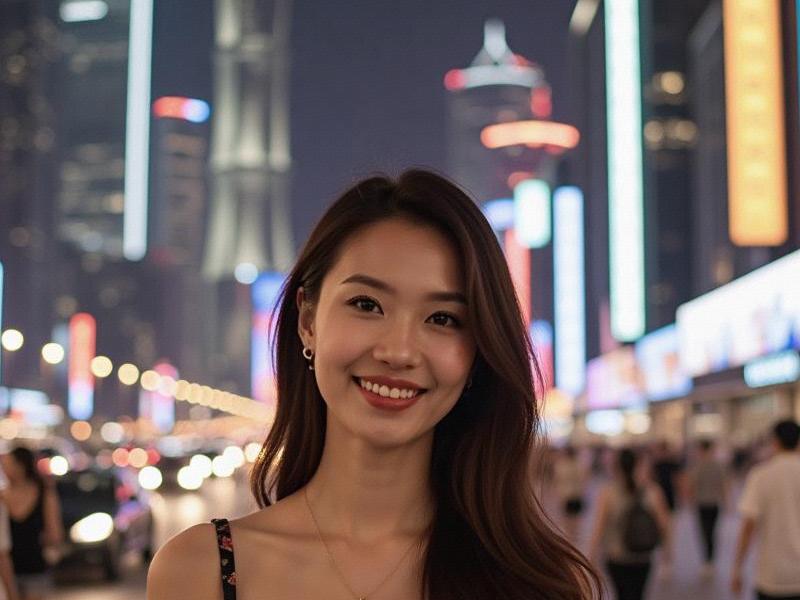This investigative report examines how Shanghai's entertainment club industry has transformed from traditional KTV parlors to sophisticated multi-experience venues that reflect the city's cosmopolitan character and evolving social dynamics.

Shanghai's entertainment club scene has undergone a remarkable metamorphosis in the past decade, mirroring the city's rapid economic development and cultural globalization. What began as simple karaoke boxes and banquet halls has evolved into a diverse ecosystem of high-concept venues that blend entertainment, gastronomy, and art in ways unique to China's most cosmopolitan city.
The modern Shanghai entertainment club transcends its predecessors in both scale and ambition. Venues like "Cloud Nine" in Jing'an District exemplify this new paradigm - a 12-story vertical entertainment complex housing a Michelin-starred restaurant, private art gallery, rooftop cocktail bar, and sound-engineered KTV suites equipped with AI vocal optimization technology. Such establishments cater to Shanghai's growing class of affluent young professionals who view leisure as a curated experience rather than simple recreation.
Industry analysts note several key trends driving this transformation:
1. The Premiumization Effect:
Average spending per customer at high-end clubs has increased 320% since 2018, with venues like "The Pearl" in Pudong commanding minimum spends of ¥8,000 per room. This reflects both rising disposable incomes and changing consumer attitudes where luxury experiences signify social status.
上海花千坊龙凤 2. Technological Integration:
Cutting-edge clubs now feature interactive projection mapping that transforms private rooms into immersive environments - from cherry blossom gardens to outer space vistas. Voice-controlled lighting and acoustics systems automatically adjust to song selections and group dynamics.
3. Culinary Elevation:
Gone are the days of simple snack platters. Establishments like "Harmony Club" employ executive chefs who craft tasting menus pairing Shanghainese flavors with molecular gastronomy techniques, served between singing sessions.
4. Cultural Hybridization:
Successful venues artfully blend Eastern and Western entertainment concepts. "Dragon & Phoenix Club" merges traditional Chinese tea ceremony rooms with Chicago-style jazz lounges, while "Bund 88" offers Cantonese opera performances followed by electronic dance parties.
上海花千坊爱上海
The regulatory landscape has also evolved significantly. Since the 2022 "Quality Nightlife Initiative," authorities have implemented stringent licensing requirements focusing on safety, hygiene, and labor standards while encouraging innovation in the nighttime economy. This has led to industry consolidation, with smaller operators either upgrading or closing shop.
Demographic shifts play a crucial role. Shanghai's growing population of repatriated overseas Chinese and expatriates has created demand for internationally flavored entertainment concepts. Meanwhile, local millennials and Gen Z consumers seek venues that offer "Instagrammable" moments alongside authentic cultural experiences.
The economic impact is substantial. Shanghai's nightlife sector now contributes ¥87 billion annually to the municipal economy and employs over 200,000 workers. The city's 1,200 licensed entertainment clubs attract nearly 15 million visits each year, with premium venues accounting for 38% of revenue despite representing just 15% of establishments.
However, challenges persist. Rising real estate costs make operations increasingly difficult - the average club now spends 42% of overhead on rent alone. Talent acquisition remains competitive, with top mixologists and hospitality managers commanding salaries comparable to tech sector positions. Additionally, the industry continues working to shed lingering perceptions of exclusivity and excess from earlier eras.
上海娱乐
Looking ahead, industry insiders predict several developments:
- The rise of "edutainment" clubs combining leisure with skill-building activities like mixology classes
- Increased partnerships with luxury brands for co-branded club experiences
- Greater integration of augmented reality for customizable venue environments
- Expansion of membership-based club networks across Yangtze Delta cities
As Shanghai positions itself as a global capital of culture and commerce, its entertainment clubs serve as both mirror and catalyst - reflecting the city's sophisticated tastes while pushing boundaries of what urban nightlife can encompass. In these vibrant spaces between tradition and innovation, one can truly hear the pulse of contemporary Shanghai.